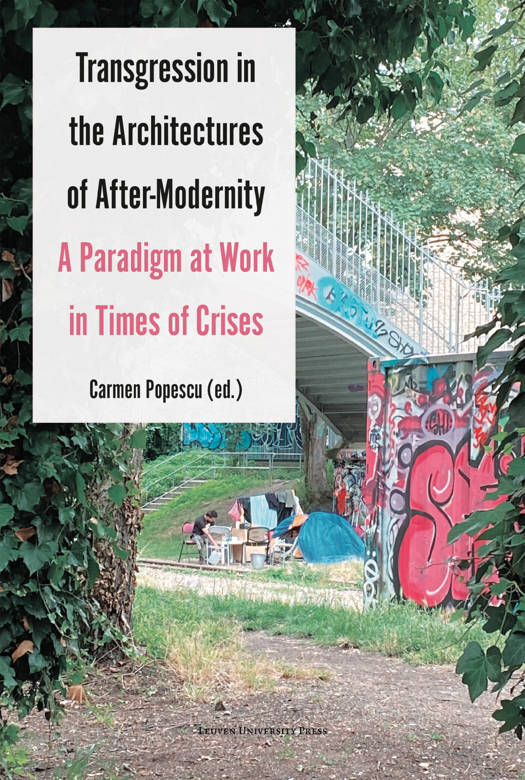
- Retrait gratuit dans votre magasin Club
- 7.000.000 titres dans notre catalogue
- Payer en toute sécurité
- Toujours un magasin près de chez vous
- Retrait gratuit dans votre magasin Club
- 7.000.0000 titres dans notre catalogue
- Payer en toute sécurité
- Toujours un magasin près de chez vous
Transgression in the Architectures of After-Modernity
A Paradigm at Work in Times of Crises
Simon Baker, Gülsüm Baydar, Tiago Castela, Francesca Romana Dell’Aglio, Patrick Düblin, Ole Fischer, Kivanc Kilinc, Sarah Mills, Savia Palate, Christian Parreno, Jesse Rafeiro, Ahenk YilmazDescription
Transgressive acts in architecture as responses to today's ecological, political, economic, and social crises
In architecture, transgressive acts have always been a reality, in spite of rules and canons that have defined the discipline and its extended field. However, in recent decades their frequency and radicality have surged from rather random, marginal and/or idiosyncratic phenomena. While their sudden rise can be explained as a response to the compulsive normativity of modernity, the deeper root is to be sought elsewhere: the recent waves of transgressiveness are intimately linked to the hypercrisis affecting our world today - spanning ecological, political, economic, and social dimensions, and catalysing fundamental mutations and disorders. Some of these transgressive acts are motivated by a desire to dismantle a malfunctioning system, but more often than not breaking the rules has become an inherent survival tactic amid urgent social challenges. In our era of after-modernity, transgression emerges not just as an act of defiance but reveals a new paradigm at work - a critical framework for reimagining the built environment, challenging established orders, and advocating for the rights of marginalised populations. Through a rich array of empirical case studies and theoretical insights, this volume provides a unique, forward-looking perspective on transgressive acts in architecture as responses to today's ecological, political, economic, and social crises.
This book will be made open access within three years of publication thanks to JSTOR's Path to Open pilot
Contributors: Simon Baker (Sheffield University); Gülsüm Baydar (Yasar University), Tiago Castela (University of Coimbra), Francesca Romana Dell'Aglio (University of Basel), Patrick Düblin (ETH Zürich), Ole Fischer (Staatliche Akademie der Bildenden Künste, Stuttgart), Kivanc Kilinc (Izmir Institute of Technology), Sarah Mills (Leeds Becket University), Savia Palate (University of Cyprus), Christian Parreno (University San Francisco de Quito), Carmen Popescu (Ecole Nationale Supérieure d'Architecture Paris Val-de-Seine), Jesse Rafeiro (University of Tokyo), Ahenk Yilmaz (Yasar University)
Spécifications
Parties prenantes
- Auteur(s) :
- Editeur:
Contenu
- Nombre de pages :
- 240
- Langue:
- Anglais
Caractéristiques
- EAN:
- 9789462704657
- Date de parution :
- 15-07-25
- Format:
- Livre broché
- Format numérique:
- Trade paperback (VS)
- Dimensions :
- 155 mm x 233 mm

Les avis
Nous publions uniquement les avis qui respectent les conditions requises. Consultez nos conditions pour les avis.






